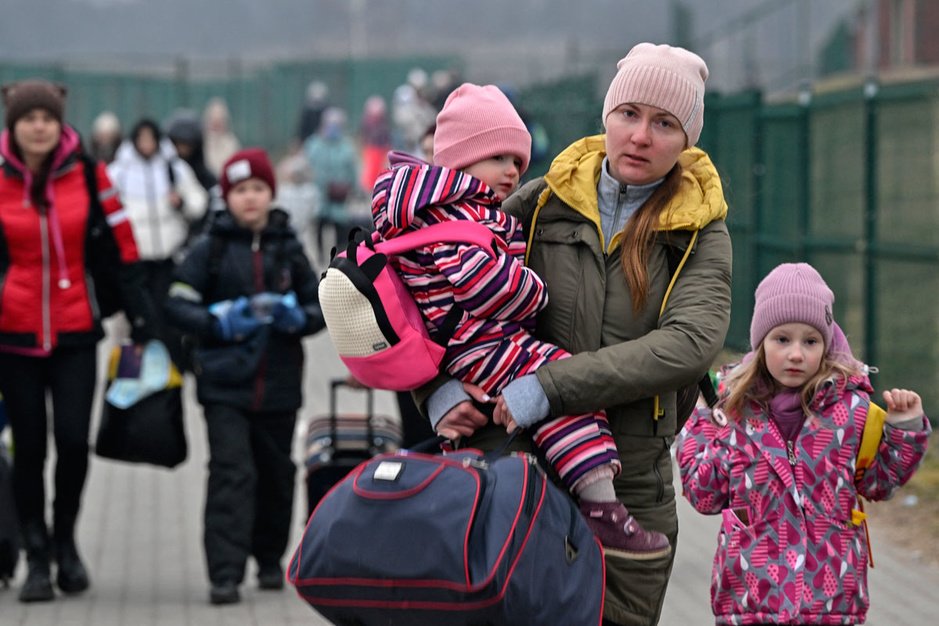The controversial debate on abortion in Poland has been reignited following the arrival of Ukrainian women refugees who have been victims of sexual violence by Russian soldiers in Ukraine.
Under current restrictive abortion laws, it is uncertain whether women who become pregnant through rape and seek refuge in Poland can still have legal and safe abortions there, De Standaard reported.
Abortion after rape is, in principle, legal in Poland. In practice, it is almost impossible to access abortion services stated Amnesty International, after Poland's draconian abortion laws were tightened even further in 2020.
"No victim of sexual violence exposes themselves to the Polish system without being traumatised again," Kinga Jelinska told De Standaard. She and others from the non-profit Abortion Without Borders are helping women in Poland access abortion pills online or travel to another country for a clinical abortion, as the pills are only available for the first 12 weeks of pregnancy.
The Polish hotline that women can call for abortion matters has been used 82 times by Ukrainians since the start of March. "We do not ask whether they are victims of rape. Unlike the Polish state, we do not interfere with the reasons for abortion," stressed Jelinska.
Abortion Support Group, an international organisation providing abortion information assistance, has claimed it has recieved calls from 200 people from Ukraine seeking to get support for access to abortion services. They claim they have been able to provide access to safe abortion pills to most of them.
Fears of reprisals
Jelinska underlined that the entire system in Poland is aimed at making abortion as difficult as possible. "It's a monstrosity," said Jelinska, adding that victims must first report it to the police as rape before being able to access abortion services. Yet, it is still currently unclear how the Public Prosecutor in Poland can deal with crimes committed in other countries.
The lack of access to abortion has resulted in at least two Polish women dying from pregnancy complications when doctors refused to terminate the pregnancies out of fears of reprisals from the Polish state.
Related News
- The European Commission penalizes Poland for breaches in the rule of law
- EU law or Polish constitution – which takes precedence?
- European Commission doubts independence of Polish Constitutional Tribunal
The best access to abortion is in Ukraine. Although controversial, it is still legal for the first 12 weeks of pregnancy. Previously, pregnant women from Poland travelled there to access abortion services.
'The main thing now is to make sure that there are enough abortion and morning-after pills in Ukraine," said Jelinska. "And that the women who have fled to Poland know that they can turn to NGOs."
Poland vs the EU
Poland has been on a collision course with the EU for years. It rolled back women's rights when it introduced its severe abortion laws in 2020, although the country already had some of the most restrictive laws in place for abortion across the EU.
Previously, abortion was only allowed after incidents of rape, if the mother's life was in danger or if the fetus showed clear signs of disease. Over 90 percent of the approximately 1,000 legal abortions annually performed were on the grounds of the latter, which means the new ruling effectively imposed a near-total ban on abortion.
The ban came into effect in 2021 after a ruling from the Constitutional Tribunal in Poland. Since then, 34,000 Polish women have sought access to abortion illegally or abroad, according to the Guardian.
Both the European Court of Human Rights and the European Commission have found that the Constitutional Tribunal doesn't meet fair trial requirements due to its lack of independence from the legislative and the executive branches of the state.
Activists and women’s rights organizations report that the verdict means that medical professionals fear persecution from the state, even in cases where abortion is legal. Civil society and women human rights advocates pushing for the decision to be overturned have faced threats of violence and multiple protesters have been brought to court.

